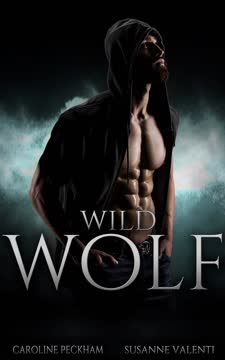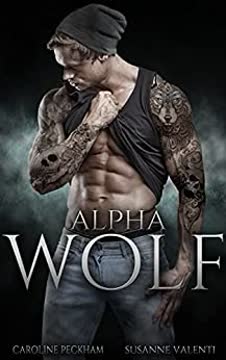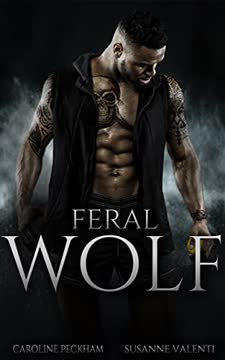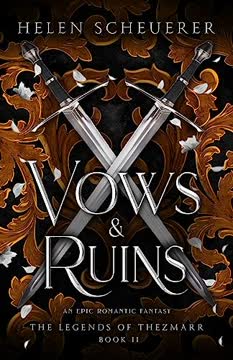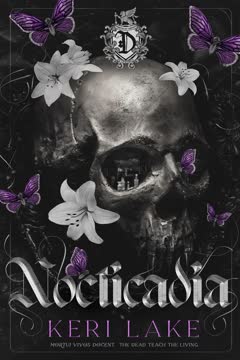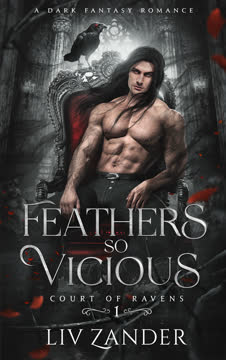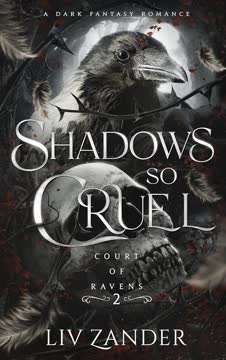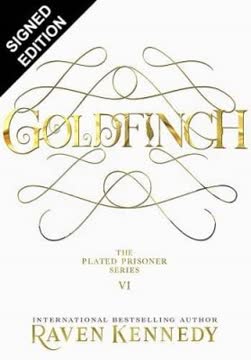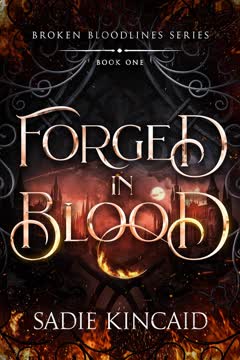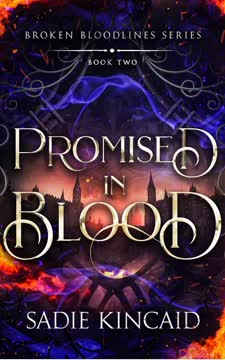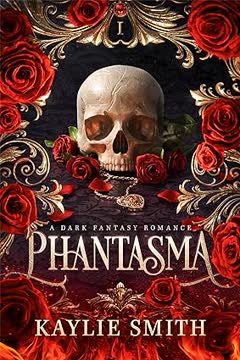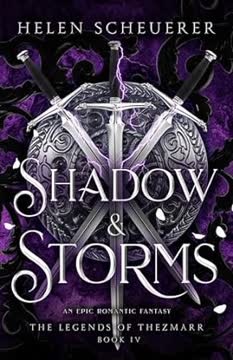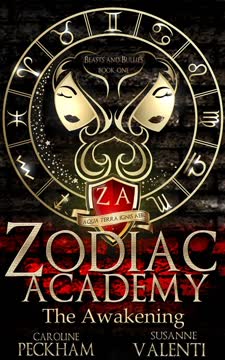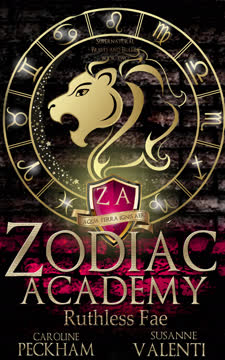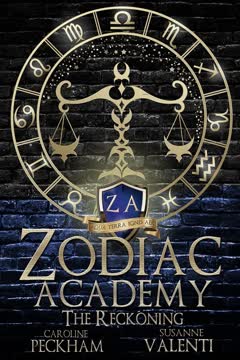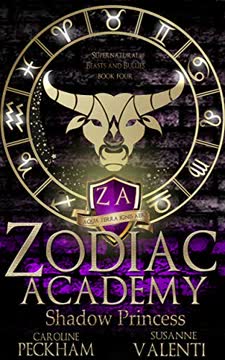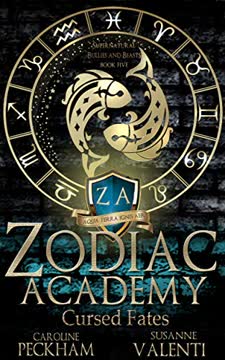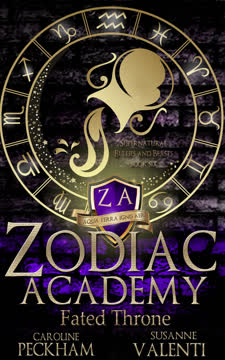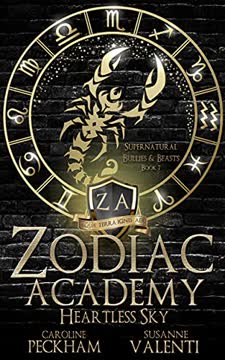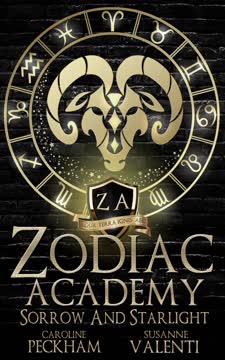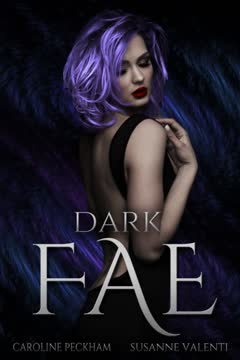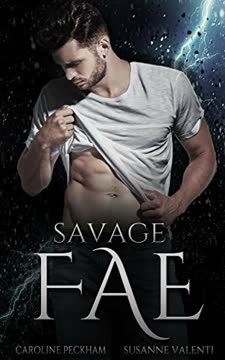Plot Summary
Escape and Heartbreak
Rosalie and her ragtag group of allies escape the brutal Darkmore Penitentiary, but the victory is hollow—Roary, her mate and the man she risked everything to save, is left behind. The pain of this failure is raw, fracturing trust among the group and leaving Rosalie consumed by guilt and rage. As they crash-land in the jungle, the group splinters under the weight of their trauma and conflicting loyalties. Rosalie's only certainty is her vow: she will do anything to get Roary back, no matter the cost.
Prisoners and Betrayals
Roary, now a prisoner of the sadistic Seer Roland Vard, is subjected to a horrific experiment—his Lion shifter Order is forcibly removed and replaced with that of a Vampire. Stripped of his identity, Roary is tormented by the loss of his true self and the fear that he is now a danger to those he loves. Meanwhile, the group outside struggles with their own betrayals: former guards Cain and Hastings are now fugitives, and the lines between friend and foe blur as survival demands new alliances.
Homecoming and Family Ties
The escapees find refuge at the Oscura family estate, where Rosalie's pack and extended family welcome them with open arms. Yet the joy of homecoming is tainted by the absence of Roary and the unresolved tensions among the group. Family bonds are tested as Rosalie's leadership is challenged, and the group must decide whether to risk everything for another rescue attempt. The Oscura clan's warmth and chaos offer comfort, but also remind Rosalie of all she stands to lose.
The Price of Freedom
As the group regroups, they learn that the authorities are covering up Roary's fate, claiming he escaped with the others. The truth is more sinister: Roary and other prisoners have been taken for illegal experiments. The group must navigate a web of lies, blackmail, and criminal underworld politics to uncover Roary's location. Old debts are called in, and Rosalie is forced to negotiate with dangerous figures, including the unpredictable Sin and his criminal foster brother Jerome.
Secrets and Schemes
With the help of Sin's underworld contacts, the group tracks Roary to a remote island where Vard is auctioning off his Order-extraction technology to the highest bidder. The rescue mission is fraught with peril: the group must infiltrate a den of criminals, outwit powerful enemies, and face the monstrous results of Vard's experiments. Trust is in short supply, and every alliance is a gamble.
The Hunt for Roary
Disguised and divided, the group enters the island's black market, navigating a labyrinth of danger. Rosalie and Cain work together to locate Roary, while Sin and Ethan unleash chaos to create a distraction. The horrors of Vard's experiments are revealed: prisoners transformed into monsters, Orders stolen and traded like commodities. The group's unity and resourcefulness are tested as they fight their way to Roary.
Monsters and Experiments
Roary, now a Vampire, is paraded as Vard's greatest achievement—a living proof that Orders can be stolen and replaced. The crowd is both horrified and hungry for the technology. The group witnesses the fate of other victims, including Gustard, now a mindless beast. The moral lines blur as the group is forced to kill or be killed, and the true extent of Vard's depravity becomes clear.
The Smuggler's Ball
As Vard prepares to sell his technology, the group launches their assault. Rosalie and Cain break Roary out of his cage, but he is barely in control of his new Vampire instincts. The rescue devolves into chaos as the group battles guards, monsters, and rival criminals. In the melee, Vard escapes with Roary's stolen Lion Order, setting the stage for a final confrontation.
The Lion's Transformation
Roary grapples with his new nature, torn between the bloodlust of a Vampire and the memory of his lost Lion. Cain, himself a Vampire, becomes Roary's reluctant mentor, teaching him to control his urges. Their bond deepens as they face the truth of their shared trauma and the possibility of redemption. Rosalie's love is unwavering, but the question remains: can Roary ever be whole again?
The Hellion Hunt
To master his new Order, Roary must survive the Hellion Hunt—a brutal underground game where Vampires hunt prey and each other. Cain guides him through the ordeal, and together they confront their darkest instincts. The experience forges a new understanding between them, and Rosalie's role as the heart of the pack is solidified. The group emerges stronger, but the clock is ticking: Vard still holds the key to Roary's true self.
Blood, Bonds, and Betrayal
Sin's foster brother Jerome betrays him, selling Sin and Max (Sin's newly discovered half-brother) to Vard in exchange for power and revenge. Sin's world is shattered as he faces the truth about his past and the people he called family. The group must race against time to save Sin and Max before they become the next victims of Vard's experiments.
The Final Confrontation
The group storms Vard's polar fortress, battling guards, monsters, and the elements. Cain faces his abuser, Benjamin Acrux, in a deadly duel, sacrificing himself to save Rosalie. Rosalie, empowered by the moon, resurrects Cain, breaking the curse that has haunted him. Roary and Rosalie pursue Vard into the snow, where Roary's Lion Order is finally restored in a miraculous fusion of magic and love. Vard meets a brutal end, and the group's enemies are vanquished.
Moonlight and Resurrection
Cain's death and resurrection mark a turning point for the group. The moon's magic, channeled through Rosalie, not only saves Cain but also heals old wounds and forges unbreakable bonds among the pack. The group is finally free from the curses and traumas of their pasts, and the promise of a new future beckons.
The Pack Reunited
With their enemies defeated and Roary restored, the group returns home. The Oscura estate is filled with laughter, love, and the chaos of found family. Old grievances are forgiven, and new traditions are born. The pack is stronger than ever, united by the trials they have survived and the love they share.
Healing and Forgiveness
Roary reconciles with his family, confronting his father and mothers and forging a new relationship built on honesty and acceptance. Cain finds peace with his past and embraces his place in the pack. Sin, once an outsider, is fully claimed as family. The wounds of the past are not forgotten, but they are no longer a source of pain.
New Beginnings
The group is officially pardoned for their crimes, and the threat of Darkmore and Vard's experiments is erased from the world. They build a new home together, adopting lost children and creating a sanctuary for those in need. The future is uncertain, but for the first time, it is theirs to shape.
Found Family
The pack grows, welcoming new members and embracing the chaos and joy of family life. Each character finds their place, their purpose, and their happiness. The lessons of the past are woven into the fabric of their new lives, and the promise of "a morte e ritorno"—to death and back—becomes their guiding star.
A Morte e Ritorno
Years later, the pack's legacy endures. Their home is filled with laughter, love, and the next generation of wild, beloved children. The scars of the past are honored, but the future is bright. The story ends not with an ending, but with the promise that love, family, and the will to fight for each other can overcome even the darkest fate.
Characters
Rosalie Oscura
Rosalie is the driving force of the story—a Wolf shifter with a tragic past, unbreakable will, and a heart big enough to hold a found family. Her journey is one of self-forgiveness, leadership, and the refusal to let fate dictate her life. She is both ruthless and nurturing, haunted by guilt but propelled by love. Her relationships—with Roary, Ethan, Sin, and Cain—are complex, passionate, and transformative. Rosalie's arc is about reclaiming agency, healing old wounds, and building a family on her own terms.
Roary Night
Once a proud Lion shifter, Roary is transformed into a Vampire against his will, stripped of his identity and forced to confront what it means to be himself. His journey is one of trauma, adaptation, and ultimately, miraculous restoration. Roary's love for Rosalie is unwavering, and his struggle to control his new nature is both a source of pain and growth. His reconciliation with his family and the recovery of his Lion Order symbolize the possibility of healing and wholeness after profound loss.
Sin Wilder (Whitney Northfield)
Sin is an Incubus with a fractured psyche, a penchant for mayhem, and a deep hunger for love and belonging. His humor and unpredictability mask deep wounds from abandonment and betrayal, especially by his foster brother Jerome. Sin's journey is about finding acceptance, embracing his true self, and learning that he is worthy of love. His relationship with Rosalie and the pack transforms him from a loner and assassin into a cherished member of a family.
Cain Mason
Once a guard at Darkmore, Cain is forced to confront his own complicity in a corrupt system and the trauma of his abusive upbringing. His transformation from enemy to ally is marked by guilt, sacrifice, and a desperate need for forgiveness. The moon's curse and his eventual resurrection by Rosalie are metaphors for his journey from self-loathing to acceptance. Cain's love for Rosalie and his bond with Roary are central to his healing.
Ethan Shadowbrook
Ethan is Rosalie's other mate, a Wolf shifter who struggles with his own failures and the loss of his pack. He is the emotional anchor of the group, offering stability, humor, and unwavering support. Ethan's journey is about learning to share, to forgive himself, and to embrace the chaos of found family.
Jerome Novius
Jerome is Sin's foster brother and a criminal mastermind. His betrayal of Sin and the group is a devastating blow, forcing Sin to confront the truth about his past and the nature of family. Jerome's actions drive much of the plot's final act, and his death at Sin's hands is both a tragedy and a necessary catharsis.
Max Rigel
Max is Sin's half-brother and a former Heir to the throne. His journey is about reconciling his privileged upbringing with the harsh realities of the world, and learning to accept Sin as family. Max's political savvy and moral compass help the group navigate the aftermath of their victory.
Hastings
Once a naive guard, Hastings is swept up in the chaos and forced to confront the darkness of the world. His journey is one of survival, adaptation, and unexpected bravery. He provides levity and heart, and his eventual acceptance into the pack is a testament to the story's theme of found family.
Benjamin Acrux
Cain's childhood abuser and a key figure in the story's web of corruption, Benjamin is a Dragon shifter whose cruelty has left deep scars. His death at Cain's hands is both a personal and symbolic victory, representing the triumph of healing over abuse.
Roland Vard (Drav)
The primary antagonist, Vard is a Seer obsessed with power and control. His experiments on Orders and his role in the war have left a legacy of pain and horror. Vard's defeat is the culmination of the group's struggle against fate, and his death marks the end of an era of suffering.
Plot Devices
Order Extraction and Replacement
The central plot device is Vard's technology for extracting and replacing magical Orders, turning Fae into commodities and unleashing a wave of trauma and transformation. This device drives the plot, raises the stakes, and serves as a metaphor for the violation of self and the struggle to reclaim agency.
Found Family and Polyamory
The story's emotional core is the creation of a found family—a pack forged from trauma, love, and shared struggle. The polyamorous relationships among Rosalie, Roary, Ethan, Sin, and Cain challenge traditional norms and offer a vision of love as abundant, healing, and transformative.
The Moon's Magic and Curses
The moon is both a literal and symbolic force, granting power, imposing curses, and ultimately offering resurrection and healing. The breaking of Cain's curse and the restoration of Roary's Lion are moments of miraculous intervention, suggesting that fate can be rewritten through love and will.
Betrayal and Forgiveness
Betrayal—by guards, by family, by lovers—is a recurring motif, but so is forgiveness. The story explores the pain of betrayal and the difficulty of trust, but ultimately argues that healing is possible when people choose to forgive and move forward together.
The Hero's Journey and Rebirth
Each character undergoes a journey through suffering, loss, and transformation, emerging changed but stronger. The narrative structure echoes the classic hero's journey, with literal and metaphorical descents into hell (Darkmore, the tower, the Hellion Hunt) and triumphant returns.
Analysis
is a sprawling, emotionally charged fantasy that explores the trauma of captivity, the horror of identity theft, and the redemptive power of found family. At its heart, the novel is about the refusal to be defined by fate or by the wounds of the past. Through its polyamorous, queer-affirming relationships and its focus on healing, the story challenges traditional notions of love, family, and heroism. The plot's relentless pace and high stakes are balanced by moments of humor, tenderness, and genuine vulnerability. The ultimate message is one of hope: that even in a world scarred by violence and betrayal, love can create new beginnings, and the bonds we choose are stronger than the ones we inherit. The legacy of "a morte e ritorno"—to death and back—becomes a rallying cry for resilience, forgiveness, and the courage to claim joy in the aftermath of suffering.
Last updated:
FAQ
```markdown
Synopsis & Basic Details
What is Wild Wolf about?
- A Desperate Escape: Wild Wolf follows Rosalie Oscura and her allies as they break out of the notorious Darkmore Penitentiary, a high-stakes mission complicated by the devastating loss of her mate, Roary Night, who is left behind. The initial triumph is overshadowed by Rosalie's guilt and rage, fueling her unwavering resolve to rescue Roary at any cost.
- Identity Stolen, New Alliances Forged: Roary, captured by the sadistic Seer Roland Vard, undergoes a horrific transformation, his Lion Shifter Order replaced by that of a Vampire. Meanwhile, Rosalie's group, including former guards Cain and Hastings, and her mates Ethan and Sin, must navigate a treacherous underworld, uncovering Vard's grotesque experiments and forming unlikely alliances to locate Roary.
- A Fight for Freedom and Family: The narrative culminates in a perilous infiltration of Vard's polar fortress, a battle against monstrous creations, and a desperate race to restore Roary's true self. Beyond the action, the story delves into themes of found family, polyamorous love, and the healing power of acceptance, as the characters confront their past traumas and build a new future together.
Why should I read Wild Wolf?
- Deep Emotional Resonance: Readers should dive into Wild Wolf for its raw emotional depth, exploring themes of trauma, identity, and the fierce loyalty of chosen family. The characters' struggles with their pasts and their journey towards healing offer a powerful and relatable experience.
- Unique Polyamorous Dynamics: The book offers a refreshing and complex portrayal of polyamorous relationships, showcasing how love can be expansive and transformative, challenging traditional romantic narratives. The intricate bonds between Rosalie and her mates are central to the story's emotional core.
- High-Stakes Fantasy Action: Beyond its emotional layers, Wild Wolf delivers relentless, high-octane fantasy action, intricate world-building within the Solaria kingdom, and a compelling plot filled with unexpected twists, making it a thrilling read for fans of dark fantasy.
What is the background of Wild Wolf?
- Solaria Kingdom's Dark History: Wild Wolf is set in the broader Solaria kingdom, a world previously explored in the Dark Fae and Zodiac Academy series. This context implies a history of magical Orders, political strife, and significant past wars, particularly the Dragon King's reign and the Order persecutions, which deeply impact the characters and their world.
- Post-War Trauma and Corruption: The story unfolds in a society still grappling with the aftermath of major conflicts, where institutions like Darkmore Penitentiary are rife with corruption and illegal magical experimentation. This background highlights the systemic injustices and the desperate need for heroes to challenge the established, often cruel, power structures.
- Interconnected Character Histories: Many characters carry personal histories tied to Solaria's past, such as Cain's abusive upbringing under Benjamin Acrux and Sin's abandonment, which are direct consequences of the kingdom's tumultuous history. These backstories provide rich context for their motivations and the complex relationships they form.
What are the most memorable quotes in Wild Wolf?
- "Take that pain and forge it into something fierce, something powerful, something real, Rosa. Make it drive you or it will break you." (Dante, Chapter 1): This quote encapsulates Rosalie's core struggle and resilience, highlighting the transformative power of grief and anger. It defines her journey from victim to formidable leader, emphasizing her refusal to be consumed by despair.
- "I will wage wars and raze hell to see you smile again." (Sin, Chapter 4): This declaration from Sin to Rosalie reveals the depth of his devotion and the ferocity of his love. It underscores his chaotic yet unwavering loyalty, showcasing his commitment to her happiness above all else, even his own safety.
- "No fate is ever set. You could still break the curse. Stranger things have happened, Cain. Don't lose faith just yet." (Roary, Chapter 24): This quote offers a beacon of hope amidst despair, directly challenging the deterministic nature of curses and fate. It speaks to the novel's overarching theme of agency and the belief that individuals can defy predetermined destinies through sheer will and the support of their loved ones.
What writing style, narrative choices, and literary techniques does Caroline Peckham use?
- Multi-Perspective Narrative: Peckham employs a rotating first-person point of view, primarily focusing on Rosalie, Roary, Sin, Cain, and Ethan. This choice offers deep psychological insight into each character's internal struggles, motivations, and emotional responses, enriching the reader's understanding of their complex relationships and individual journeys.
- Visceral and Sensory Language: The prose is highly descriptive, immersing the reader in the characters' experiences through vivid sensory details. From the "wind hissed through my hair" to the "metallic tang of blood," the language is often raw and visceral, amplifying the intensity of action sequences and emotional moments.
- Symbolism and Foreshadowing: The authors skillfully weave in symbolism, such as the moon representing Rosalie's power and guidance, or the recurring motif of animals and their Orders reflecting identity. Subtle foreshadowing, like throwaway lines about Jerome's true nature or the implications of Vard's experiments, builds suspense and adds layers of meaning that become apparent upon deeper reflection.
Hidden Details & Subtle Connections
What are some minor details that add significant meaning?
- Plunger's Potato Obsession: Plunger's seemingly absurd fixation on potatoes and root vegetables, culminating in his "gift" of potatoes and a carrot to Rosalie, subtly highlights the dehumanizing and psychologically warping effects of Darkmore Penitentiary. It suggests a coping mechanism, a retreat into the mundane and absurd, that underscores the profound trauma he endured, making his eventual, quiet departure more poignant.
- Hastings's Accidental "Jazzy Eyes": Hastings's accidental injection of "jazzy eyes" potion, leading to his erratic behavior and vivid hallucinations, is more than just comic relief. It serves as a subtle commentary on the fine line between sanity and madness in their world, and how easily one can be pushed over the edge by trauma, even if the effects are temporary. It also foreshadows the extreme measures characters might take in desperation.
- Sin's Crow-Thing Companion: The talian corvid (Crow-thing) that attaches itself to Sin after being freed from its cage is a small but significant detail. Crows often symbolize mystery, transformation, and even death, mirroring Sin's own journey from a chaotic assassin to a man seeking belonging and understanding. Its unwavering loyalty to Sin reflects his deep-seated need for unconditional acceptance, a stark contrast to Jerome's betrayal.
What are some subtle foreshadowing and callbacks?
- Jerome's Lack of Emotion for Sin: Early in Chapter 4, Jerome's "half-hearted" pat on Sin's back and his general lack of overwhelming emotion at Sin's return, despite having "waited a long time to get you back," subtly foreshadows his eventual betrayal. It hints that Jerome's motivations are not rooted in genuine affection but in a more calculating, self-serving agenda, a callback to his criminal nature.
- Cain's "Moon Touched" Revelation: During Cain's near-death experience in Chapter 47, the Ferryman's gasp, "You are Moon Touched," is a powerful callback to the moon curse on his arm. It recontextualizes the curse not just as a punishment, but as a deeper, perhaps protective, connection to Rosalie's celestial patron, hinting at his eventual resurrection and the moon's favor.
- Rosalie's "Conversing with the Dead": In Chapter 25, Rosalie casually mentions to Sin that her powers "even let me converse with the dead once or twice." This seemingly throwaway line subtly foreshadows her later, pivotal communication with Serenity, Sin's mother, through The Veil in Chapter 27, establishing the moon's unique ability to bridge life and death for her.
What are some unexpected character connections?
- Cain and Roary's Shared Vampire Trauma: The unexpected bond that forms between Cain and Roary, both Vampires, is a profound connection rooted in shared trauma. Cain, initially Roary's jailer, becomes his reluctant mentor, teaching him to control his new Order. This mirrors Cain's own struggle with his identity and past, creating a powerful parallel between their journeys of self-acceptance and control, transcending their initial adversarial roles.
- Sin and Max's Fraternal Echoes: The discovery that Sin and Max are half-brothers reveals a surprising connection, especially as Max, a seemingly principled Heir, exhibits a "beautiful insanity" that mirrors Sin's own chaotic nature. This connection suggests that despite vastly different upbringings, a shared wildness runs in their blood, hinting at deeper, inherited traits beyond societal roles.
- Hastings's Unlikely Heroism: Hastings, initially portrayed as a timid, easily flustered guard, develops an unexpected connection to heroism. His accidental ingestion of "jazzy eyes" and subsequent leadership of the freed animals, combined with his stand against the FIB, transforms him into an "unforgettable" hero in the eyes of the pack, showcasing that bravery can emerge from the most unexpected places.
Who are the most significant supporting characters?
- Aunt Bianca: Rosalie's Aunt Bianca is a pivotal supporting character, embodying the heart and soul of the Oscura family. Her unwavering love, practical wisdom ("Subtle wasn't something the Oscura women were known for"), and fierce protectiveness provide a grounding force for Rosalie and a safe haven for the entire pack. She represents the unconditional acceptance and strength of found family.
- Jerome Novius: Sin's foster brother, Jerome, serves as a crucial antagonist whose betrayal drives a significant portion of Sin's emotional arc. His role as a criminal mastermind who commodifies relationships and power highlights the darker side of the underworld, forcing Sin to confront his past and redefine his understanding of loyalty and family.
- Max Rigel: Max, Sin's newly discovered half-brother, is significant as a bridge between the criminal underworld and the established Fae society. His principled nature and political influence are instrumental in securing pardons for the group, while his personal journey of accepting Sin challenges his preconceived notions of family and justice.
Psychological, Emotional, & Relational Analysis
What are some unspoken motivations of the characters?
- Rosalie's Guilt-Driven Obsession: Beneath Rosalie's fierce determination to rescue Roary lies a profound, unspoken guilt over his initial imprisonment. Her declaration, "It was my fault he got put there in the first place and whatever is happening to him now is my fault too," reveals a deep-seated belief that she is responsible for his suffering, driving her relentless pursuit and making her unwilling to compromise on his rescue.
- Cain's Desire for Redemption: Cain's seemingly reluctant loyalty to Rosalie is subtly motivated by a desperate need for redemption, not just from his past as a corrupt guard, but from the trauma inflicted by Benjamin Acrux. His willingness to sacrifice himself for Rosalie and his eventual acceptance of his Vampire nature are acts of self-forgiveness, seeking to atone for a past he couldn't control.
- Sin's Craving for Unconditional Love: Sin's chaotic behavior and constant need for attention mask a deep, unspoken craving for unconditional love and acceptance, stemming from his abandonment as a child. His willingness to perform Jerome's deadly tasks and his later devotion to Rosalie are driven by a desire to be seen, valued, and truly belong, making his eventual discovery of his true parentage and Max's acceptance profoundly healing.
What psychological complexities do the characters exhibit?
- Roary's Identity Dissociation: Roary's forced transformation into a Vampire creates a profound psychological complexity, leading to identity dissociation. He struggles with the foreignness of his new Order, feeling "invaded" and believing he is "not the man you fell in love with anymore." This internal conflict highlights the psychological toll of having one's core identity forcibly altered, making his journey a battle for self-acceptance and integration.
- Cain's Trauma-Induced Self-Loathing: Cain exhibits deep-seated self-loathing stemming from his abusive upbringing under Benjamin Acrux, leading him to believe he is a "miserable fuck who deserves everything he gets." His internal struggle between his inherent goodness and the monstrous identity he was forced to adopt creates a complex character who grapples with his capacity for both cruelty and compassion, seeking external validation for his worth.
- Sin's Mask of Mayhem: Sin's constant "mayhem" and "candied chaos" serve as a psychological mask, a defense mechanism to cope with the trauma of abandonment and betrayal. His inability to articulate his own sexual desires initially ("I don't know where that'll lead") reveals a deeper disconnect from his authentic self, which Rosalie helps him uncover, allowing him to embrace his true, multifaceted identity.
What are the major emotional turning points?
- Rosalie's Vow of "A Morte e Ritorno": In Chapter 1, Rosalie's raw, grief-stricken vow to get Roary back, echoing her family's motto "A morte e ritorno," marks a critical emotional turning point. This moment solidifies her unwavering resolve and sets the emotional stakes for the entire narrative, transforming her pain into a powerful, driving force.
- Roary's Acceptance of His Vampire Order: Roary's decision to embrace his Vampire Order during the Hellion Hunt, guided by Cain, is a major emotional shift. His initial resistance ("It's not my Order!") gives way to a grudging acceptance, realizing that controlling this new power is essential for his survival and his ability to protect Rosalie, signifying a step towards integrating his altered identity.
- Sin's Confrontation with Jerome: Sin's brutal confrontation and subsequent killing of Jerome in Chapter 45 is a devastating emotional turning point. This act, born of profound betrayal and shattered trust, forces Sin to acknowledge the depth of his pain and the true nature of his foster brother, leading to a cathartic release and a clearer understanding of his own moral compass.
How do relationship dynamics evolve?
- Rosalie's Polyamorous Pack Formation: Rosalie's relationships evolve from individual romantic connections into a cohesive, polyamorous pack dynamic. Initially focused on Roary, her bonds with Ethan, Sin, and Cain deepen through shared trauma and mutual support, culminating in a family where love is expansive and inclusive, challenging traditional monogamous expectations.
- Cain and Roary's Mentor-Mentee to Brotherhood: The dynamic between Cain and Roary transforms from a captor-prisoner relationship into a complex mentor-mentee bond, and eventually, a form of brotherhood. Cain's guidance in helping Roary control his Vampire instincts fosters mutual respect and understanding, bridging their past animosity and forging a powerful alliance rooted in shared experience.
- Sin and Max's Unexpected Fraternal Bond: Sin's discovery of Max as his half-brother dramatically shifts his relationship with family. From a loner who felt abandoned, Sin finds an unexpected connection with Max, who, despite his initial skepticism, comes to accept and protect Sin. This bond challenges Sin's perception of family and offers him a sense of belonging he never thought possible.
Interpretation & Debate
Which parts of the story remain ambiguous or open-ended?
- The Full Extent of the Moon's Influence: While the moon is a powerful force in Rosalie's life, granting her magic and even facilitating communication with the dead, the precise nature and limits of its influence remain somewhat ambiguous. The moon's motivations for cursing Cain and later breaking it, or for restoring Roary's Lion, are presented as divine interventions rather than fully explained magical mechanics, leaving room for interpretive debate on fate versus free will.
- The Long-Term Psychological Impact of Order Replacement: Although Roary's Lion Order is restored and he learns to integrate his Vampire abilities, the long-term psychological impact of having his Order forcibly extracted and replaced remains somewhat open-ended. The narrative focuses on his immediate healing and acceptance, but the deeper, lingering effects of such a profound violation of identity could be debated as a continuous internal struggle.
- The Future of the "Found Family" in Solaria: The story concludes with the pack building a new home and adopting children, creating a sanctuary. However, the long-term sustainability of this "found family" in a world still recovering from war and corruption, and their continued status as outlaws (albeit pardoned), leaves the future open to interpretation. How will their unique family structure and past actions continue to shape their interactions with wider Solarian society?
What are some debatable, controversial scenes or moments in Wild Wolf?
- Rosalie's Polyamorous Relationships: The explicit and detailed portrayal of Rosalie's polyamorous relationships with Roary, Ethan, Sin, and Cain is a central and potentially controversial aspect of Wild Wolf. While celebrated within the narrative as a form of expansive love and healing, some readers might debate the dynamics, power imbalances, or the sheer number of partners, especially given the intense emotional and physical intimacy depicted.
- Sin's Justification for Murder: Sin's character, a self-proclaimed "monster" who finds joy in killing "deserving motherfuckers," presents a morally ambiguous stance on justice. His casual approach to violence and his belief that his victims "deserved their deaths" can be controversial, prompting readers to debate the ethics of vigilantism and whether his actions are truly heroic or simply a manifestation of his fractured psyche.
- Cain's Resurrection and the Moon's Mercy: Cain's death and subsequent resurrection by Rosalie, facilitated by the moon, could be seen as a controversial plot device. While it offers a powerful moment of redemption and healing, some might argue it undermines the stakes of death or questions the consistency of the moon's "curse" if it can be so easily reversed by Rosalie's love, leading to discussions about divine intervention versus character agency.
Wild Wolf Ending Explained: How It Ends & What It Means
Review Summary
Wild Wolf received mixed reviews from readers. Many praised the conclusion to the Darkmore Penitentiary series, highlighting the character development, humor, and satisfying ending. However, some felt the book was rushed and lacked the depth of previous installments. Criticisms included unexplained plot elements, easily resolved conflicts, and underdeveloped character arcs. Despite these issues, fans appreciated the cameos from other series and the overall world-building. The book's reception ranged from disappointment to enthusiasm, with most readers finding it a decent, if not perfect, finale to the Solaria universe.
Darkmore Penitentiary Series
Similar Books
Download PDF
Download EPUB
.epub digital book format is ideal for reading ebooks on phones, tablets, and e-readers.
